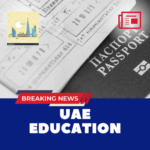Introduction: UAE Education System, The United Arab Emirates (UAE) embarked on an extraordinary educational journey following its federation, marking the beginning with the establishment of the United Arab Emirates University in Al Ain, Abu Dhabi. This pivotal moment laid the foundation for a nation committed to intellectual growth and empowerment. Over the years, the UAE has not just expanded its educational infrastructure but has also focused on enhancing the quality of education, ensuring inclusivity, and fostering innovation.
The UAE’s dedication to education is evident in its ambitious goals and significant investments. With a vision to nurture a generation equipped for the future, the Agenda 2021 was introduced, underscoring the importance of youth education. This strategic initiative reflects the UAE’s commitment to preparing its young citizens to become leaders in various fields, contributing to the nation’s growth and global standing.
A remarkable aspect of the UAE’s educational policy is its commitment to gender equality, ensuring that women have equal access to educational opportunities. This progressive stance has played a crucial role in enhancing women’s participation in education, thereby enriching the nation’s intellectual capital.
The UAE’s investment in education is substantial, allocating approximately 25 percent of its total federal government spending to this sector. This significant financial commitment demonstrates the country’s prioritization of education as a cornerstone for development and progress.
As of 2019, the UAE boasts an impressive overall literacy rate of 96 percent, a testament to the effectiveness of its educational policies and investments. This achievement not only highlights the success of the UAE’s educational initiatives but also sets a benchmark for other nations striving to improve their educational outcomes.
The Basics of UAE Education System at a Glance
The UAE’s Ministry of Education has embarked on an innovative journey with the launch of “Education 2021,” a forward-thinking initiative spanning three years. This strategic plan is crafted to revolutionize the educational landscape by integrating cutting-edge teaching methodologies, fostering innovation among students, and emphasizing the development of self-directed learning skills. A cornerstone of this ambitious program is the introduction of an enriched curriculum for mathematics and integrated science, starting from the very foundation of a student’s academic journey—the first grade. This enhancement was rolled out across all government schools for the academic year 2003–4, setting a new standard for early education.
The structure of the UAE’s education system is meticulously organized into four distinct stages, each designed to cater to the developmental needs and academic progression of students:
- Kindergarten: Welcoming young learners aged 4–5 years old, this stage comprises KG 1 and KG 2. It lays the foundational blocks of learning through play and exploration, nurturing curiosity and social skills.
- Primary School: Spanning Grades 1 to 6, this stage educates students aged 6–11 years old. It focuses on building a strong academic foundation, introducing core subjects, and developing essential literacy and numeracy skills.
- Preparatory Stage: Covering Grades 7 to 9, this phase targets students aged 12–14 years old. It serves as a bridge between primary education and secondary schooling, deepening subject knowledge and preparing students for more specialized studies.
- Secondary School: The final stage encompasses Grades 10 to 12, catering to students aged 15–17 years old. This level is pivotal for academic specialization and career preparation, offering advanced courses and extracurricular activities that enrich students’ educational experience. Upon reaching the culmination of their secondary education journey, students in the UAE embark on a pivotal milestone—the Shahadat Al-Thanawiya Al-Amma examination.
This comprehensive assessment marks the end of the twelfth year and stands as a gateway to further educational pursuits and career opportunities. Successfully passing this examination signifies not only academic achievement but also the acquisition of essential knowledge and skills that prepare students for the challenges and opportunities that lie ahead. The Shahadat Al-Thanawiya Al-Amma is more than just a certificate; it represents a rite of passage, a testament to the hard work, dedication, and perseverance exhibited throughout the students’ educational journey.
Through this structured approach, the UAE ensures a comprehensive and progressive educational journey for its youth, equipping them with the knowledge, skills, and attitudes necessary to thrive in an increasingly competitive global environment.
UAE Education System at Higher Level
Technical Secondary Education: Pioneering Pathways to Success
In the realm of technical secondary education within the UAE, a dual-cycle approach is meticulously crafted to equip students with the foundational skills necessary for their chosen paths. The preparatory cycle introduces an Engineering course, laying the groundwork for the Intermediate Certificate. This education stream branches into three core disciplines:
- Technical: Fostering innovation and practical skills in technology and engineering.
- Agricultural: Cultivating expertise in sustainable farming practices and agricultural sciences.
- Commercial: Nurturing business acumen and entrepreneurial spirit among future leaders.
Upon completion of this enriching journey, students are awarded the prestigious Technical Secondary Diploma, marking their readiness to contribute significantly to the nation’s workforce.
Higher Education: Elevating Minds, Transforming Futures
The UAE’s higher education landscape is a vibrant tapestry woven with universities, higher colleges of technology (HCT), and various institutes, both public and private. This rich educational ecosystem ensures a broad spectrum of opportunities for intellectual growth, innovation, and career development, positioning the UAE at the forefront of global academic excellence.
Adult Education: Empowering Lifelong Learners
Recognizing the transformative power of education at every stage of life, the UAE places a strong emphasis on adult education. Through targeted illiteracy eradication programs and initiatives led by the Women Federation society, the nation strives to uplift its citizens, fostering a culture of continuous learning and empowerment.
Special Education: Embracing Diversity, Enriching Lives
The UAE stands as a beacon of inclusivity and support for students with special needs. A dedicated department within the Ministry of Education is tasked with enhancing educational opportunities for these individuals, ensuring they receive the knowledge and tools necessary to thrive. By signing the optional protocol to the UN Convention on the Rights of Persons with Disabilities, the UAE reaffirms its commitment to equality and accessibility in education.
Specialized centers managed by the Ministry of Labour and Social Affairs cater to students with hearing and physical disabilities, visual impairments, and other special needs. These facilities are integral to the UAE’s efforts to integrate special needs students into mainstream education, reflecting the country’s dedication to creating an inclusive and supportive learning environment for all.
University Education and Admission Process (UAE Education System)
Since 2017, the educational landscape in the UAE has witnessed a transformative shift with the introduction of the Emirates Standardized Test (EmSAT) for admission into a university, a pivotal assessment tool that has redefined the path to higher education. Replacing the former Common Educational Proficiency Assessment (CEPA), EmSAT stands as a beacon of innovation, ensuring a fair and standardized evaluation of students’ academic prowess across public and private schools adhering to the national curriculum.
This series of computer-based tests, encompassing subjects such as mathematics, physics, English, and Arabic, with an additional requirement for chemistry for advanced track students, serves a dual purpose. Not only does it streamline the admission process into most public universities and colleges, but it also acts as a barometer for gauging the overall performance of students and schools alike.
The advent of EmSAT marks a significant departure from traditional admission practices, heralding a new era of selectivity and meritocracy in higher education. Public higher education institutions (HEIs) in the UAE, known for their rigorous selection criteria, now rely heavily on high EmSAT scores, alongside proficiency in English as evidenced by tests like TOEFL or IELTS. This shift underscores the UAE’s commitment to maintaining high educational standards and preparing its students for a globally competitive environment.
Historically, the pathway to higher education was fraught with challenges, particularly for those lacking the requisite English proficiency. Foundation programs, designed to bridge this gap, saw limited success, with only a fraction of students qualifying for direct entry. Recognizing the inefficiencies and costs associated with these programs, the UAE has embarked on a bold reform—phasing out foundation programs by 2021. This decision is underpinned by the belief that the revamped national school curriculum, with its enhanced focus on English language instruction, will better equip students for direct entry into public HEIs.
(UAE Education System)
While this move aims to streamline access to higher education, it also opens up new avenues for private institutions and international high schools offering English-taught curricula. With potentially lower admission barriers, private HEIs present an alternative pathway for students, albeit at a higher cost. Moreover, holders of foreign high school qualifications, such as the U.S. high school diploma, British IGCSE, or the International Baccalaureate, find themselves well-positioned for admission into public Emirati institutions, subject to fulfilling additional criteria.
In essence, the UAE’s educational reforms, epitomized by the introduction of EmSAT and the phasing out of foundation programs, represent a dynamic shift towards a more inclusive, efficient, and quality-driven higher education system. This evolution not only promises to elevate the academic preparedness of UAE students but also positions the nation as a leader in educational innovation and excellence.
In conclusion, the UAE’s education system stands as a testament to the nation’s unwavering commitment to progress and excellence. From its humble beginnings to becoming a regional hub for education, the UAE has transformed its educational landscape through visionary leadership and strategic investments. The introduction of innovative programs like “Education 2021” and the integration of English-language education across various subjects highlight the UAE’s proactive approach to preparing its students for a competitive global environment. With a focus on inclusivity, quality, and the preservation of local traditions, the UAE’s education system exemplifies a model of success that is both inspirational and inspirational for nations around the world.
Sharing is appreciated






